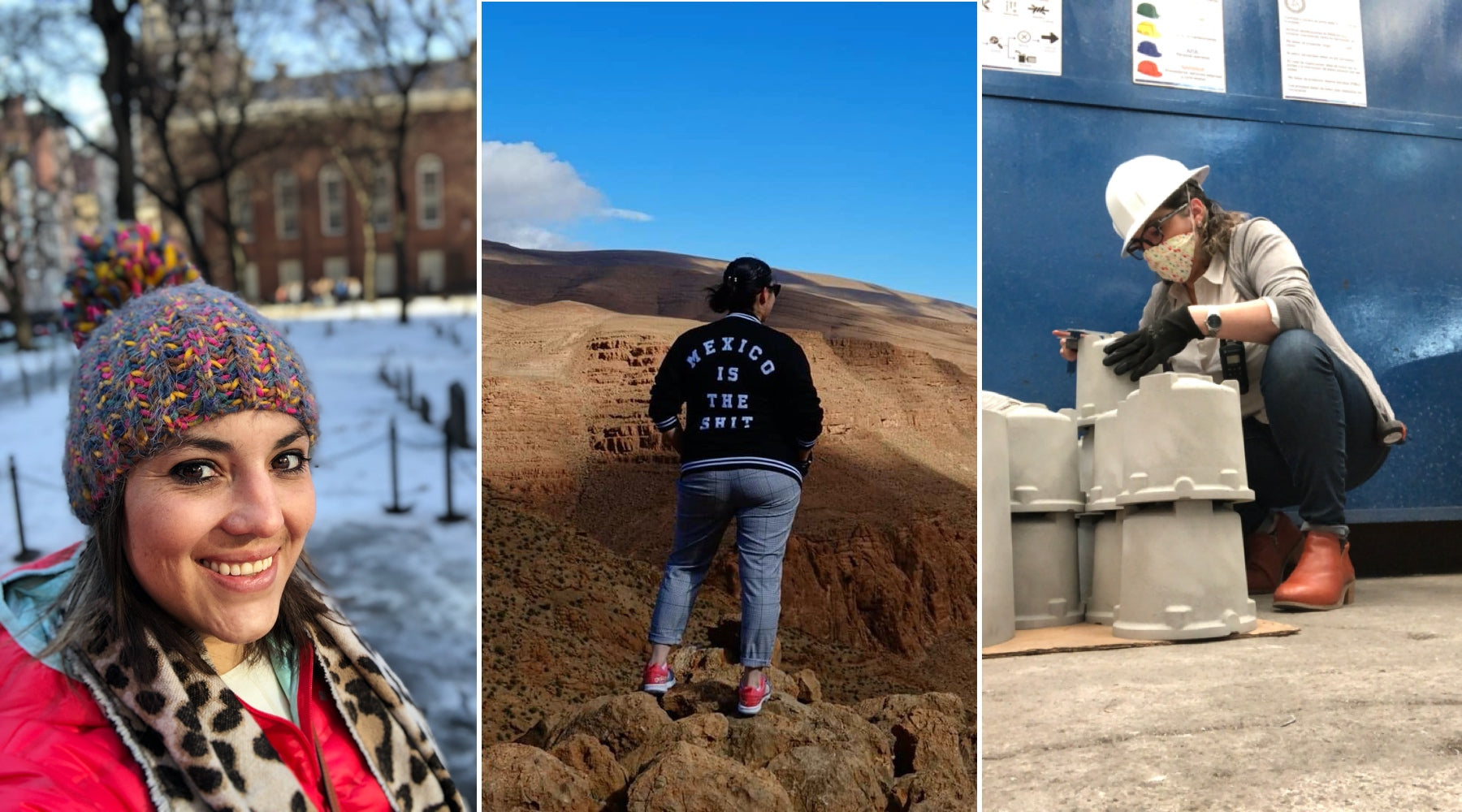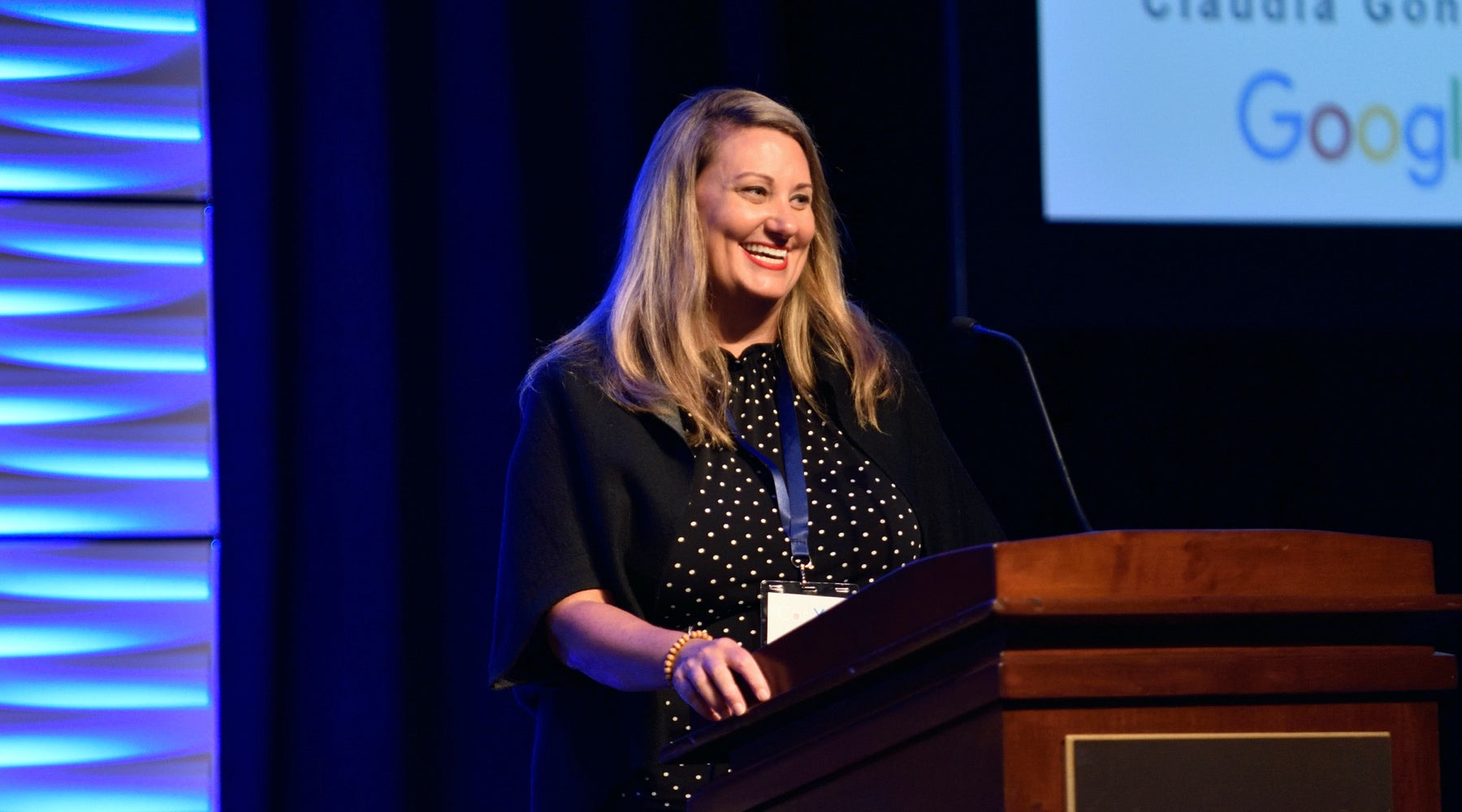
Fashion to Foundry
“I had sworn I would never work at the foundry. Well, the joke’s on me.”
When Monica Gomez left her fashion job, her father asked for her help on a couple of things at her family foundry in Mexico. She started out by creating marketing materials, but that soon evolved into a full-time quality management position.
While Monica never saw herself working in the family business, through hard work and dedication she’s grown to appreciate her role at the place she never thought she’d end up in, and she loves it.
The Role of Women
For as long as she can remember, the foundry has been a part of Monica’s family. Her father and grandfather opened it in the 1980s. One would melt the metal while the other made the molds. One would pour the metal while the other held everything in place.
Joining the family business was not a ticket to a cushy job. Monica found that because she is a young woman with family ties she has to fight even harder to get credibility.
“The most difficult interactions are with personnel because they’ve been around me since I was a little girl. Now, they’re like, ‘Wait, she’s our boss. What’s going on?’”

This is especially true in Mexico, where traditional gender roles still rule, where pre-conceived perception can trump knowledge and skill. It is a daily struggle to prove her worth to coworkers, clients, and suppliers. Monica’s solution?
“Most of the time, I stand my ground and say ‘This is how it is, and this is how it goes. You can look it up or you can question it, but I’ve got all of the information behind me. Figure it out.’ Usually, they figure out and they realize ‘Oh, she actually did know what she was talking about.’ It’s worked for some. Others are very against it or they choose not to deal with me. They try to go around me.”
She makes it a prerogative to fight gender stereotypes for herself and as a role model for other young girls. She believes it is important to show young girls, especially those who live within areas where traditional gender roles still reign, that it is possible to succeed in this industry.
Recently, she hosted a public school when they came to a plant visit. She wanted to ensure that when the girls looked to the front of the class, they would see someone who they can relate to. By being the key speaker, she showed the girls what women can accomplish in the workplace.
“It was a public school in a low-income area. Traditionally it would be culturally ingrained that women should stay home, or that they might be worthless. I told them that if there are girls coming I want them to see that there are women in leadership. I wanted them to see a young woman who is succeeding.”
The Art of Design
Monica has a degree in Fashion Design and a master's in Fashion Management. Her vast knowledge of the fashion industry, especially in marketing and design disciplines, helped to accelerate her career advance.
She applies her knowledge whenever she can to help the business. For example, Monica made innovative floor signs that are more intuitive to use and she designs marketing materials for client presentations.
“We get that comment a lot on our materials. Often [customers] ask ‘do you hire a designer to do this?’ then I say ‘Well, no, I’m the one doing it’. That’s when they get surprised and say ‘Wait, why?’. It’s one of my favorite parts. I really enjoy it when they let me sit down and do graphic design.”
Overcoming Self-Doubt
Despite excelling in her quality manager position at the foundry, Monica still struggles with imposter syndrome.
“Sometimes I feel very sure about what I know, but then doubt creeps in because I didn’t actually go to school for this. I have no technical degree—everything I know is empirical. Everything I know has been learned on the job and through reading.”
To combat this, Monica emphasizes that the most important thing anyone can do is to work hard, to be true to yourself, and to not let anyone tell you what you know. The strongest weapon in the workforce is experience. The more time you spend in the industry, the more the feeling will dissipate.




